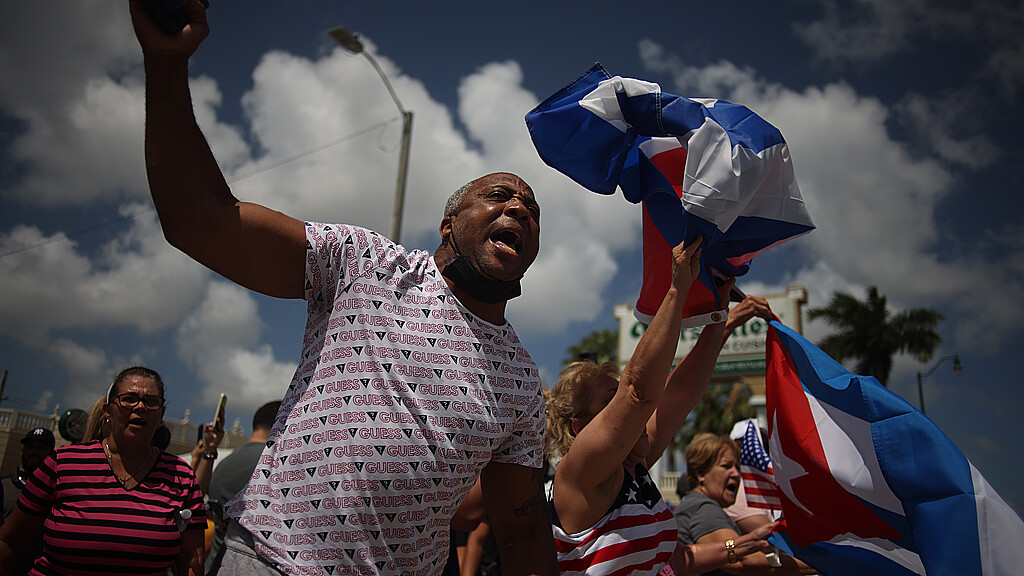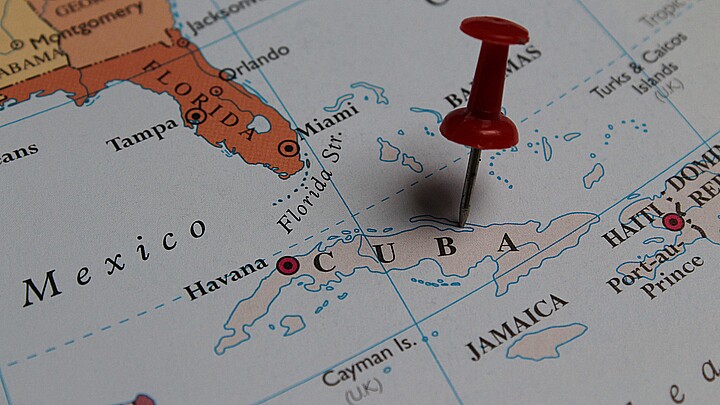Culture
Cuban artists call to boycott regime-sponsored cultural events
Several Cuban artists called on the international art community to abandon "the political fantasy that Cuba is a socialist utopia"

September 2, 2023 5:13am
Updated: September 8, 2023 12:56pm
More than twenty renowned Cuban artists, such as Tania Bruguera, Coco Fusco, and Reynier Leyva Novo, called for a boycott of cultural presentations abroad sponsored by the Castro regime, according to a letter originally published in Hyperallergic magazine.
The letter comes almost a year after the regime implemented a new Penal Code, which included new censorship and punishment laws against independent journalists and artists.
The Cuban government arrested hundreds of peaceful protesters across the island in July 2021 and October 2022, many of whom are still imprisoned today, including artist Luis Manuel Otero Alcántara and two-time Grammy-winning rapper Maykel "Osorbo" Pérez.
For artist and curator Coco Fusco, the main purpose of the letter was "to address the international art world and ask them to reflect on their motives for engaging with the Cuban government by accepting invitations to participate in or attend art events," she told ADN Cuba.
"We want foreigners to understand that, regardless of how they view themselves and their intentions, the Cuban government uses their presence for political and economic benefit. In short, there is no neutrality,” she continued.
“We want foreigners to consider very seriously why the current public debates about the ethics of their associations have not extended to the implications of engaging with Cuba," she added.
Cuban artist Julio Llópiz Casal, who is among the 24 artists who signed the letter, told ADN Cuba that this "is an emerging measure to raise awareness among the international visual arts community. Uncritical participation in cultural events on the island contributes to the whitewashing of a political system that penalizes free expression and also art independent of state dictates."
The Cuban artists' appeal states that "instead of guaranteeing Cubans' freedom of expression, the presence of foreign personalities from the art world contributes to sustaining the myth of the Cuban revolution as a provider of culture," he continued.
"After the decrees 349, 370, 35, and 88 were established, to name a few examples, the Cuban government only allowed non-state cultural events to remove attention from the imprisoned artists and send an exemplary message to those who are free for the time being," said Llópiz Casal.
Those who signed the letter said that it is extremely relevant that "foreigners recognize that the repression of artists is carried out by the same cultural bureaucrats who welcome them to the island, introduce them to a select number of trusted artists, and organize their visits to state art galleries."
They also criticized the regime's attempts to wash its violent image with events where international artists lend themselves to that service and condemned the current social, economic, and political crisis the island is going through, which has provoked one of the largest mass migrations since 1959.
"More than 1,000 political prisoners are currently serving outrageously long sentences for protesting peacefully, and among them are several of our fellow artists. The Cuban government's mass detention of peaceful protesters in July 2021 has been condemned by the United Nations, the European Parliament, Amnesty International, and Human Rights Watch," the letter reads.
The twenty Cuban artists called on the international art community to abandon "the political fantasy that Cuba is a socialist utopia" and insisted that it is necessary to banish that "obsolete Cold War-style vision of Cuba as a victim of imperialist aggression."
In addition to Bruguera, Fusco and Leyva Novo, Carlos Aguilera, Lester Alvarez, Yissel Arce Padrón, Mónica Batard, Raychel Carrión, Sandra Ceballos, Claudia Genlui, Celia Irina González, Hamlet Lavastida, Julio Llópiz Casal, Camila Lobón and Yanelys Núñez, among others, signed the letter.







